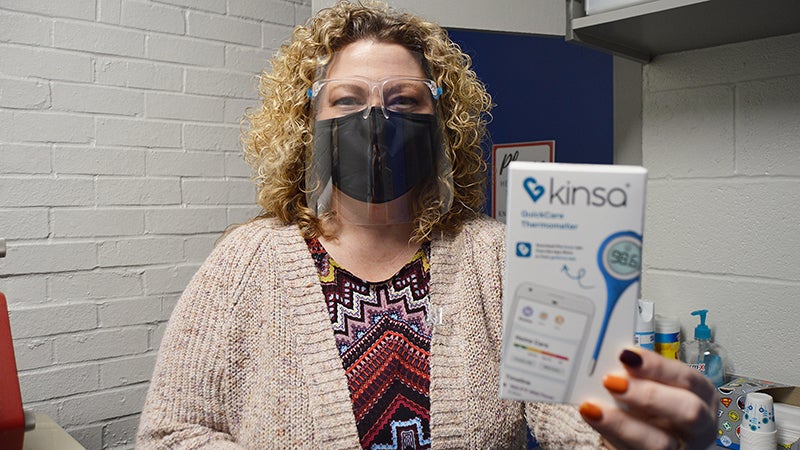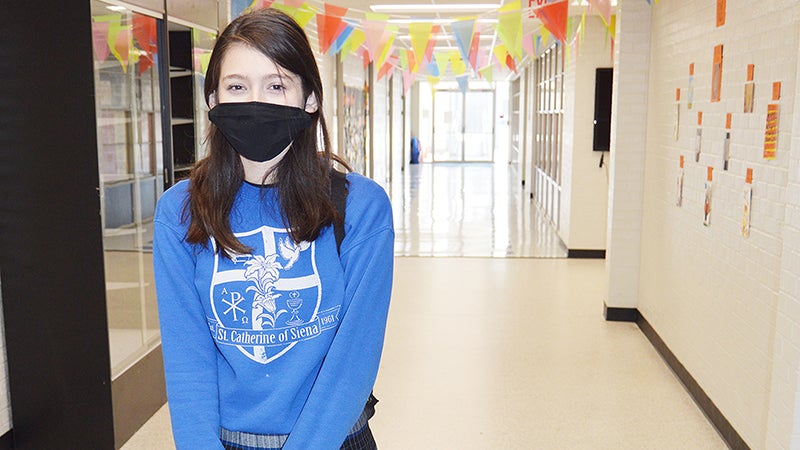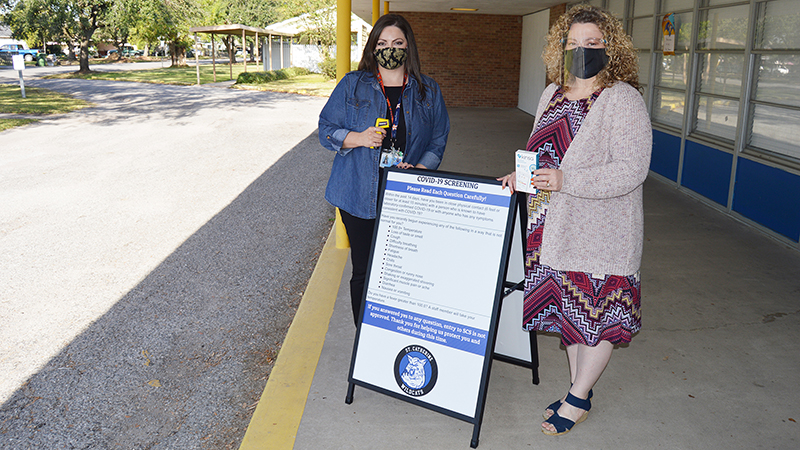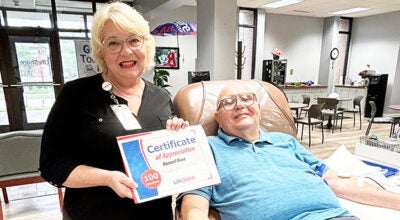BRIGHT FUTURES — St. Catherine using smart thermometers to combat health concerns
Published 12:18 am Tuesday, December 1, 2020

- Principal Dr. Renee Tolin displays a smart thermometer available for free to families of St. Catherine of Siena School participating in the Kinsa FLUency health program. (Stephen Hemelt/The News)
|
Getting your Trinity Audio player ready...
|
Communication and technology are vital for St. Catherine of Siena School leaders working on a daily basis to protect children from COVID-19 while keeping parents informed.
The Port Arthur Catholic school educates approximately 140 students daily in grades prekindergarten through eighth.
Families had the choice to sign up for remote or in-person education when the school year began, and Principal Dr. Renee Tolin said the vast majority chose the in-person option.
That trend has only increased as the school year progresses, with Tolin estimating less than 10 percent of campus students are learning remotely.
“Whenever we do find out somebody has tested positive (for COVID-19), either a faculty member, student or parent, I call every family from that class and explain to them what their risk level is, and then I send a letter to the whole school,” Tolin said. “Because of the protocols we’re using in the classrooms, we haven’t had to quarantine any classes. We’ve been able to have that one person stay at home and have the rest of the class come to school.”

Eighth grader Allison Esquivel takes a break for a quick picture during a quiet moment at St. Catherine of Siena School. (Stephen Hemelt/The News)
School officials use an electronic sprayer and COVID-killing chemical every night on campus surfaces and supplement that effort during the day with spraying and wiping through use of Lysol and Clorox products.
A mask requirement for all students is in place, as well as social distancing mandates during times like lunch. The schedule has also been augmented to eliminate as many class change periods as possible.
It’s an effort felt by students, like 14-year-old eighth grader Allison Esquivel, who said this year has been especially difficult to get used to.
The elimination of traditional events like the eighth-grade trip and dances are tough blows, she said, but understood sacrifices when considering the circumstances.
“I feel like I learn more when I’m on campus, but there are times when I have to get up early and I wish, maybe, I should just be online,” Esquivel joked.
According to Esquivel, school staff members are constantly cleaning and stressing 6 feet of distancing when students are allowed to go outside for mask breaks.
It’s an effort by teachers she said is respected by the older students.

Amber Owens and Dr. Renee Tolin stand outside St. Catherine of Siena School near the COVID-19 screening details board with smart thermometers in their hands. (Stephen Hemelt/The News)
Tolin said it has been a stressful process for everyone, adding each teacher prepares to serve students through distance learning and in-person education at the same time.
“That has certainly been challenging for them,” Tolin said.
Thankfully, the administrator said, the school’s participation in the Kinsa FLUency health program, sponsored by Lysol, has helped, providing all participating families with a free smart thermometer.
Information registered by the thermometers, which does not include names or addresses, allows Tolin to see aggregate, anonymous information on any symptoms and illnesses going around the school.
Tolin successfully linked St. Catherine to the program last academic year, a partnership that extended to many other schools in the dioceses this school year.
“That came in very helpful last year because we had a pretty bad flu season,” Tolin said. “The smart thermometers come with an app for your phone. Whenever you are at home and take your child’s temperature, personal data doesn’t come to me but what does come to me is the number of children that have a fever in a certain grade.
“We can monitor that and it is very helpful. I get a report every day in my email and I also have a portal that helps me see that data. That portal also helps because there is a nurse at Kinsa that sends messages to us that we can turn around and, through the app or social media, send that healthy tip information to our parents.”
The program started last year with more than 90 percent St. Catherine student participation.
School officials stress the program helps stop the spread of illness using early detection as the key.
Kinsa’s FLUency program is now in its sixth year with more than 4,000 schools across North America participating.





